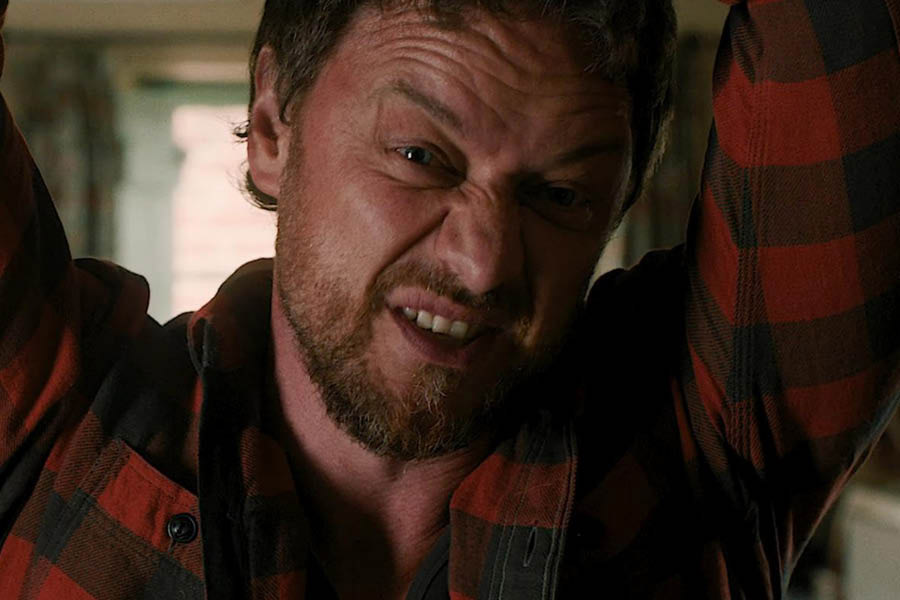James Watkins’s Speak No Evil is an unsettling horror film that centres psychological manipulation as the source of its dread. A remake of Christian Tafdrup’s 2022 Danish film, it has a deceptively simple premise but nonetheless makes your skin crawl as the plot thickens.
Ben (Scoot McNairy) and Louise (Mackenzie Davis), a couple struggling with their marriage and parenting, hit the road for what they hope will be a restorative vacation. Their daughter, Agnes (Alix West Lefler), suffers from severe anxiety, and Ben’s career troubles have hit the family hard.
Enter Paddy (James McAvoy) and Ciara (Aisling Franciosi), a couple they meet on the holiday. The charming Paddy immediately hooks Ben, who is drawn to his confidence and easy-going dominance — qualities that Ben desperately wishes he had. As the families grow closer, Paddy and Ciara invite Ben and Louise to their farmhouse in a remote village in England where nothing is as it seems.
By the time Louise, Ben and Agnes arrive at Paddy and Ciara’s house on a dark night, the warning signs are already flashing. Once they are in, those signals only intensify. Louise tries to keep a brave face though she is spooked by the house — a cramped, disorganised maze of cluttered, suffocating rooms with low ceiling. Soon enough, Paddy butchers a goose (a bad omen, no doubt) and insists that Louise, a vegetarian, has a bite. From there, the situation quickly goes south.
At its core, Speak No Evil is about adult fears — the fear of inadequacy and isolation, and the slow erosion of personal autonomy. Watkins taps into these anxieties with a smartly crafted slow burn that explores why we often ignore red flags in people around us, much to our peril.
Though the interactions between the characters seem benign, there’s an unease that creeps up from behind. Much of the tension comes from watching the characters ignore or justify the unsettling behaviour of their hosts, spurred by a need for validation.
Ben is insecure, powerless and desperate to regain control of his life. When Paddy offers him a version of masculinity that promises dominance and respect, Ben is seduced, blind to the fact that what Paddy really represents is abuse — verbal, physical and sexual. McNairy captures Ben’s tragic descent into toxic dependency, and his performance is a treat to watch.
McAvoy is electrifying as Paddy. He is suave and magnetic but there’s an ever-present threat in his physicality, a sense that at any moment his jovial exterior could crack open to reveal something darker. Paddy’s transgressions are subtle at first — a joke that sounds off, an inappropriate touch — but they escalate as the film progresses.
Louise sees through Paddy’s facade earlier than Ben, but she is trapped by her own need to maintain peace for her husband’s sake. Davis plays Louise with a quiet, simmering frustration, a woman who is doing everything she can to keep her family together even as she knows something is terribly wrong.
Franciosi delivers an equally enigmatic performance as Ciara, one who seems to be in cahoots with Paddy but whose motivations are unclear. Is she just as trapped in Paddy’s orbit, or is she a willing participant in the manipulation? The makers don’t spell it out. Her interactions with the children, particularly Agnes, are deeply unsettling, as she attempts to parent Agnes in a way that mirrors her treatment of her own son, Ant (Dan Hough), who has a speech impediment.
Speak No Evil uses the children to heighten the tension — they are innocents caught in a web of adult games and they try to communicate something important but are unable to make themselves understood. And the tension reaches a point where it is almost unbearable. When the finale arrives, it feels like the culmination of all the tiny trespasses and microaggressions that have been building throughout the film.










